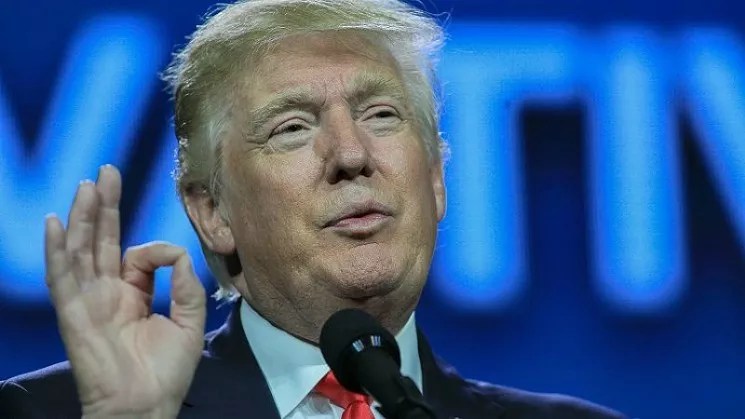
Brandon Marshall

Audio By Carbonatix
President Donald Trump claims he knows how to strike a deal, and that’s just what he did with Senator Cory Gardner to end a months-long fight between Gardner and United States Attorney General Jeff Sessions. In a phone call earlier this week, Trump assured Gardner that Colorado’s legal marijuana industry is safe from federal interference, ending a standoff between the senator and the U.S. Department of Justice over states’ rights to legalize the plant.
The fallout began in January, after Sessions announced that he would revoke the Cole Memorandum and other federal protective guidelines for marijuana dating back to 2009. Feeling betrayed by Sessions — who’d promised he wouldn’t interfere with state-compliant pot businesses and users during his confirmation hearings, according to Gardner — the senator vowed to block all future DOJ nominees until he was guaranteed that states that chose to legalize marijuana were safe from federal interference.
Gardner lifted holds on nominees for the positions of Assistant Attorney General for National Security, United States Attorney and United States Marshal in February as an “act of good faith” after talks with DOJ leadership. But those only accounted for six of 22 nominees Gardner had blocked, and he has since blocked around a dozen more.
Denver, make your New Year’s Resolution Count!
We’re $17,500 away from our End-of-Year campaign goal, with just a five days left! We’re ready to deliver — but we need the resources to do it right. If Westword matters to you, please contribute today to help us expand our current events coverage when it’s needed most.
But thanks to a phone call from Trump on Wednesday, April 11, Gardner has lifted all of the holds and says he will refrain from blocking any positions going forward. The agreement came after Trump told Gardner that the DOJ’s rescission of the Cole memo “will not impact Colorado’s legal marijuana industry” and that the president would support federal legislative efforts “to fix this states’ rights issue,” according to a statement from Gardner’s office.
“Since the campaign, President Trump has consistently supported states’ rights to decide for themselves how best to approach marijuana,” Gardner said in the statement. “Late Wednesday, I received a commitment from the President that the Department of Justice’s rescission of the Cole memo will not impact Colorado’s legal marijuana industry. Furthermore, President Trump has assured me that he will support a federalism-based legislative solution to fix this states’ rights issue once and for all.”
Gardner called out both Sessions and Trump on the Senate floor shortly after Sessions announced his decision in January, evoking the president’s past remarks on the campaign trail about states’ rights while reminding the AG of their discussions on the issue before the Senate confirmed Sessions in 2017. Gardner met with Sessions shortly after that, but no discernible actions came from the meeting.
“Because of these commitments, I have informed the Administration that I will be lifting my remaining holds on Department of Justice nominees,” Gardner continued in his April 13 statement. “My colleagues and I are continuing to work diligently on a bipartisan legislative solution that can pass Congress and head to the President’s desk to deliver on his campaign position.”
Several legislative efforts have been made in Washington, D.C., by lawmakers from Colorado and beyond in the wake of Sessions’s actions. Congressman Jared Polis, who introduced a bill in March 2017 to de-schedule marijuana as a federally illegal substance, worked with Gardner and state representatives Ed Perlmutter and Diana DeGette to create a spending-bill amendment to restrict the DOJ from interfering with Colorado’s legal pot industry. However, no bills or amendments to federal budgets have been finalized that fully protect states from federal enforcement.
Colorado attorney Brian Vicente, who helped draft Amendment 64 and co-founded one of the country’s most well-known marijuana law practices, Vicente Sederberg, says the Gardner/Trump deal makes this a “great day” for the state’s pot industry.
“We see today’s announcement as an endorsement of the work we have been doing in Colorado for the past decade. From the birth of our regulated medical marijuana market in 2010 to the opening of the adult-use market in 2014, we have sought to be the model for responsible cannabis regulation,” Vicente says in a statement. “We are incredibly proud that Senator Gardner was able to represent not just our state, but our industry in his discussions with the president. This is a great day for everyone in Colorado and around the country who risked their personal freedom to shape the regulated cannabis market.”
Not everyone was pleased, however. “Once again, Cory Gardner has staked the future of Colorado’s legal marijuana industry on the promises of a proven liar. Meanwhile, Trump gets to appoint more loyalists to the Justice Department while he is under investigation for obstruction of justice. 2020 can’t come soon enough,” Colorado Democratic Party spokesman Eric Walker says in a release.
There haven’t been any reports of state-compliant marijuana businesses or users being prosecuted by federal law enforcement since the Cole memo was revoked, and Robert Troyer, the U.S. Attorney for the District of Colorado, has stated numerous times that Sessions’s new marijuana guidelines would not change the way federal prosecutors in Colorado approach cannabis prosecutions in Colorado. Since then, one Colorado dispensary chain has even named a strain after Sessions to satirize his efforts.
In January, Polis and Senator Elizabeth Warren of Massachusetts co-authored a letter to Trump urging him to protect state marijuana rights. A bipartisan group of 54 senators and representatives signed the letter, including Perlmutter and DeGette. Although the White House indicated that Trump stood with Sessions at the time of his decision, Trump’s call with Gardner shows that the tides have started to change.
Update: This story was updated at 2:50 p.m. April 13 to add comments from Brian Vicente and Eric Walker.